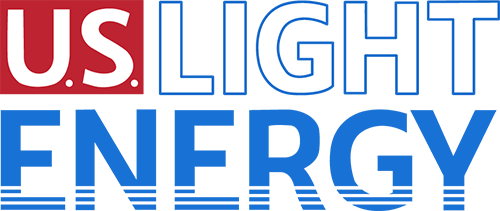Hawaii Solar Land Lease Rates, Explained
Typical lease rates for solar land leases in Hawaii can vary widely for many reasons, such as the location, sunlight exposure, and proximity to utility infrastructure and 3-phase power lines. It’s crucial for landowners to research and compare offers to ensure they receive a fair rate.
In some cases, solar developers may offer an upfront lump sum payment or monthly payments. The lease agreement terms, such as the length of the lease, potential annual rate increases, and payment schedule, can impact the rates. For example, lease rates typically increase by 1.5% to 2.5% annually for the length of the lease agreement. Landowners should carefully review these terms to secure the best deal possible.
5 Determining Factors for Solar Land Lease Rates in Hawaii
Location
One crucial factor is the land’s location. Areas with plenty of sunlight and minimal shading are more suitable for solar energy projects.
Power Line Proximity
Proximity to power lines can increase lease rates, as it’s easier to connect the solar panels to the grid.
Quality of Land
The size and shape of the land are also important. Larger, flat areas are preferred because they can accommodate more solar panels and are easier to install. Land that is difficult to access or has uneven terrain may require additional preparation costs, which can lower lease rates.
Local Zoning Laws and Regulations
Local zoning laws and regulations in Hawaii also play a role. Areas with favorable policies for renewable energy projects may have higher rates due to fewer obstacles.
Duration of the Land Lease
Another factor is the lease duration. Longer leases provide solar developers with more stability, but landowners may request higher rates for extended agreements. When properly maintained, solar farms can last as long as twenty-five years or more. That means landowners can depend on predictable, passive income for several years.
What are the Legal Aspects of Land Leases in Hawaii?
When considering a solar land lease in Hawaii, it’s important to be aware of several legal factors. First, landowners should review local zoning laws and regulations. Some areas may have specific requirements for land use for solar projects, so it’s essential to ensure your property is eligible. From wetlands to critical habitats, it’s not uncommon for regions to have environmental constraints. Consulting with local government offices or a legal expert can provide clarity. U.S. Light Energy employs a unique feasibility process to analyze the potential for solar development with each parcel of land. We analyze multiple areas of every property—from utility infrastructure and environmental considerations to local zoning and land use considerations—to drive the most value per acre.
The lease agreement itself is also critical. This contract outlines all terms and conditions, including payment amounts, lease duration, and responsibilities for both parties. Solar land lease rates in Hawaii can be affected by these terms as well. Having a lawyer review the agreement ensures your rights are protected and that you fully understand the terms. Key elements to look for include clauses about liability and any potential impacts on property taxes.
It’s essential to consider the long-term impact of a solar land lease. Since these agreements can span several decades, it’s crucial to evaluate how they may influence your property’s future use. This includes understanding any land use restrictions that may apply once the lease expires, as well as the terms for renewal or termination. Being well-informed about these legal aspects ensures you can make confident, strategic decisions when leasing your land for solar projects in Hawaii.
Solar Lease FAQs
What are the typical lease rates?
Lease rates can vary depending on several factors. Key considerations include proximity to 3-phase power lines and essential utility infrastructure, sunlight exposure, available acreage, terrain characteristics, local regulations, and current market conditions. Each of these factors can influence the amount landowners receive for leasing their property.
How long do leases last?
Solar land leases are typically long-term agreements due to the durability and longevity of solar panels. Most leases last around 25 to 30 years, though some can extend beyond 40 years. With proper care and maintenance, solar farms can remain operational for decades, providing landowners with a steady source of passive income throughout the lease term.
What are the responsibilities of both parties?
Landowners are generally responsible for providing the designated land for solar development, while the solar developer handles the rest. This includes installing and maintaining solar panels, ensuring equipment functionality, and managing the land’s upkeep. Developers typically take care of tasks such as mowing grass, maintaining drainage, and clearing entryways for site access, ensuring zero maintenance obligations for the landowner.
Partner with US Light Energy to Start Your Hawaii Solar Journey
Leasing land for solar energy projects offers landowners in Hawaii the opportunity to generate stable, long-term income while contributing to the state’s renewable energy goals. Partnering with a trusted developer like U.S. Light Energy (USLE) allows landowners to maximize their land’s value while supporting the transition to clean, renewable energy.
With competitive lease rates influenced by factors such as location, acreage, and zoning regulations, solar land leasing presents a financially viable option for landowners seeking to optimize their property’s potential. As the demand for clean energy continues to rise, landowners who act now will be well-positioned to benefit while supporting sustainable energy solutions.
Explore how solar leasing can work for you. Apply for land leasing today with U.S. Light Energy and unlock the full potential of your property. U.S. Light Energy is leading the charge for a new generation.
